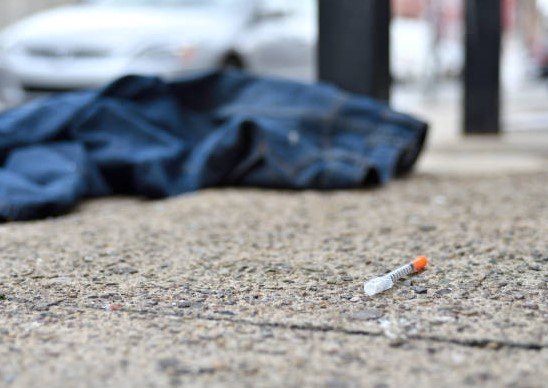Lawmakers in Maryland are pushing for stricter drug penalties in an effort to curb the state’s overdose crisis. But critics warn that Senate Bill 604 and House Bill 1398 could repeat past policy failures, criminalizing addiction without addressing its root causes.
A Crisis That Demands Action, but What Kind?
Maryland has been hit hard by the opioid epidemic. In the last decade alone, over 20,000 residents have died from overdoses, with fentanyl driving a sharp increase in fatalities. The pandemic worsened an already dire situation, leaving families desperate for solutions.
In response, lawmakers in Annapolis are considering new drug-induced homicide (DIH) laws. These bills wouldn’t classify drug-related deaths as homicide but would impose harsher penalties on anyone who distributes fentanyl or heroin that results in serious injury or death. Advocates argue that these measures will hold dealers accountable, but opponents say they ignore lessons from past failed drug policies.
The Appeal of Tougher Sentences
It’s easy to understand the emotional drive behind these proposals. Losing a loved one to an overdose is devastating. Families often want justice, accountability, and a sense of closure. The idea that a dealer’s arrest could prevent future deaths is compelling.

Toni Torsch, who lost her son to an overdose in 2010, initially supported tougher drug laws. She wanted someone to blame, someone to be held responsible. But as she became more involved in addiction recovery efforts, she began to question whether increased prison sentences actually make communities safer.
History Shows Punishment Alone Doesn’t Work
Maryland has seen these policies before, and the results weren’t promising. The war on drugs in the 1980s and ’90s led to mass incarceration, but it did little to curb drug use or overdoses. Instead, it disproportionately affected marginalized communities and fueled a cycle of imprisonment and addiction.
The Baltimore City Gun Trace Task Force scandal further underscored the problem. Corrupt officers protected drug dealers while communities suffered. One such dealer, linked to Torsch’s son’s overdose, was sent to federal prison in 2018. Yet drug use and overdose rates in Baltimore remain alarmingly high.
Will These Bills Make a Difference?
Supporters of DIH laws argue that severe penalties will deter drug distribution. However, studies suggest otherwise. A 2018 report from the Pew Charitable Trusts found no evidence that longer sentences reduce drug-related crime or overdoses. Instead, these laws often lead to unintended consequences:
- Targeting low-level users: Many of those prosecuted under DIH laws are friends or family members who shared drugs, not high-level traffickers.
- Overburdening the legal system: Courts and prisons fill up with individuals who need treatment, not punishment.
- Discouraging emergency calls: People may hesitate to seek help for an overdose if they fear legal repercussions.
Alternative Solutions to Address the Overdose Crisis
Rather than focusing on harsher sentences, many public health experts advocate for policies that treat addiction as a medical issue rather than a criminal one. Some effective strategies include:
| Policy Approach | Impact |
|---|---|
| Expanding access to naloxone | Reduces overdose deaths |
| Safe consumption sites | Provides supervised use to prevent fatalities |
| Increasing treatment programs | Helps individuals recover instead of cycling through jail |
| Good Samaritan laws | Encourages people to call 911 during overdoses |
Maryland has taken steps toward harm reduction, but experts argue more investment is needed. The state’s history with aggressive drug policies suggests that simply increasing prison sentences won’t solve the crisis.
Where Does the Debate Go from Here?
As these bills move through the legislature, the debate will continue. Lawmakers must weigh the understandable desire for justice against the evidence that punitive measures have failed before. Meanwhile, families affected by addiction hope for solutions that save lives rather than perpetuate cycles of incarceration.
Whether Maryland will repeat past mistakes or shift toward evidence-based strategies remains to be seen. But one thing is clear—people are demanding change. The question is, what kind?

Comments